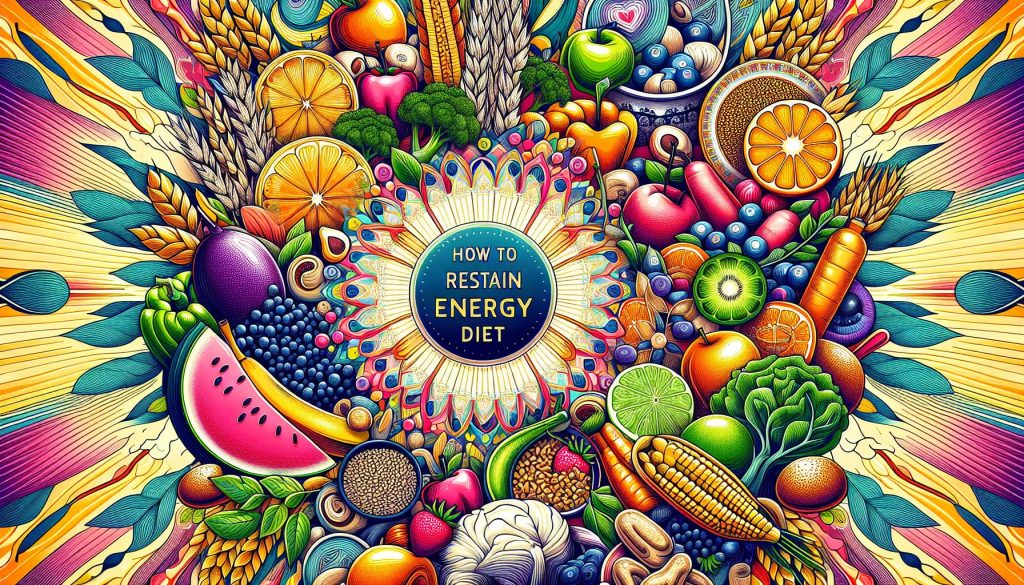
How To Intelligently Tackle Retaining Energy While Reaping The Rewards Of A Low Carb Diet
So you’ve taken a bold leap onto the low-carb lifestyle, intending to drop those persistent pounds. How then, you wonder, do you retain energy while on a low carb diet? Like a well-crafted melody elevating a timeless song, a balanced combination of necessary nutrients – even in a low carb diet - will ensure you have ample energy to soar through your day with vim and vigor. To retain energy during your low carb journey, you have to masterfully balance intake of healthy fats, proteins, and nutrient-rich carbs. Let’s delve in, dissecting how to keep your energy up while adhering to a low carb lifestyle.
Treading Wisely With Carbs – The Fuel For Your Body
Yes, you’re right – you heard carbs mentioned! The notion of a low-carb diet shouldn’t be mistaken for a no-carb regimen. Much like a gardener diligently selecting the seeds for a lavishing garden, it’s about selecting the right carbs to partake – ones rich in nutrients that aid in energy sustenance.
Whole, unprocessed carbs like fruits, vegetables and whole grains, are not just carb sources but powerhouses of essential vitamins, minerals, and fiber. Even on your low-carb canvass, these are the strokes of color that complete your dietary masterpiece.
Eat Your Green, It’s More Than Just a Childhood Mantra!
Don’t neglect the verdant veggies on your plate! Like a lighthouse in a storm, key vegetable choices illuminate the path to energy-filled low-carb days. Leafy greens, broccoli, bell peppers – they’re low in carbs, but high in dietary fiber, keeping your energy steady.
Avoid Getting Trapped In The Hungry-Mantra, Eat More Protein And Healthy Fats
With carbs reduced, proteins and healthy fats become essential players on your plate. Magnificent proteins serve as the building blocks for your muscles; think of them as the bricks in your fortress of energy, ensuring consistent power for your daily exploits. Equally important are the fats, often demonized, yet paramount in an energy-sustaining diet.
Oily Fish – A Delicious Paradox!
Certain fats like Omega-3 fatty acids not only provide long-lasting satiety but also shine as the exemplars of heart and brain health. The perfect paradox, oily fish, although high in fats, aid in weight loss by curbing cravings and reducing inflammation.
Hydrate, Hydrate, And Then Hydrate Some More!
Water is the overlooked elixir in the quest for energy retention during a low-carb diet. Just as rivers feed the roots of copious trees, adequate hydration powers every cellular function, directly impacting your energy levels.
Beyond Plain Water: Herbal Teas And Bone Broth
Don’t fancy plain water? Herbal teas and bone broth offer hydration with added benefits, easing digestion, detoxifying your body, and revving your metabolic engine – a perfect blend towards sustaining energy.
Exercise Wisely – Strike The Right Balance
Exercise is an energy booster. However, without the timely fuel from carbs, intense workouts could leave you feeling drained rather than vibrant.
Warm Up To Yoga And Light Cardio
Favor light cardio workouts, yoga or pilates that encourage energy production without leaving you gasping for breath and the candy bar.
And That’s A Wrap!
Navigating a low-carb diet while retaining energy might initially seem like a high-wire balancing act. However, by incorporating the right nutrients, staying well-hydrated, and striking a balance in your exercise routine, you can indeed champion the challenging course of a low-carb diet while feeling buoyant and energetic.
Frequently Asked Questions
1. How long does it take for your body to adjust to a low-carb diet?
After about 2-4 days of beginning a low-carb diet, your body starts transitioning to use fats for energy instead of carbs.
2. Why do I feel tired on a low-carb diet?
Your body primarily uses carbs for energy. During the initial phase of a low-carb diet, as your body acclimates to using fats for energy, you might feel a little sluggish or tired.
3. Can you exercise effectively while on a low-carb diet?
Yes, but it’s best to focus on light cardio, yoga or pilates rather than high-intensity workouts which may cause an energy crash.
4. What are some good sources of protein for a low-carb diet?
Lean meats, poultry, fish, eggs, and dairy products are all excellent protein sources that are low in carbs.
5. Are there any fruits and vegetables I should avoid on a low-carb diet?
While most fruits and vegetables are healthy choices, some like bananas, grapes, corn, and potatoes tend to have higher carb content and are best consumed in moderation.



